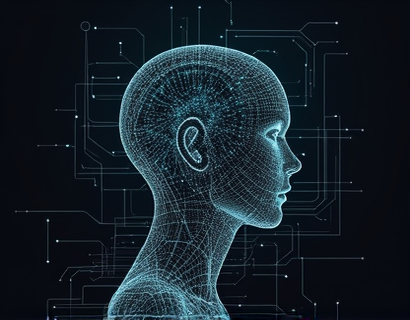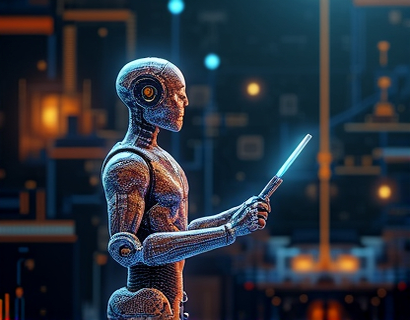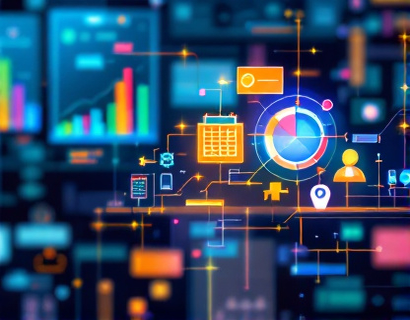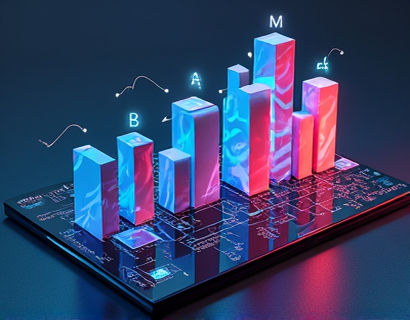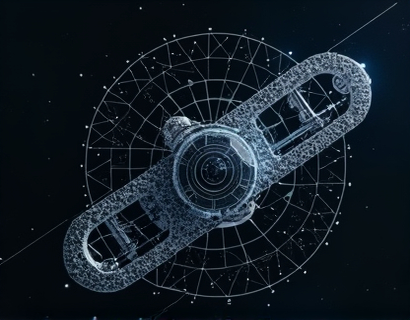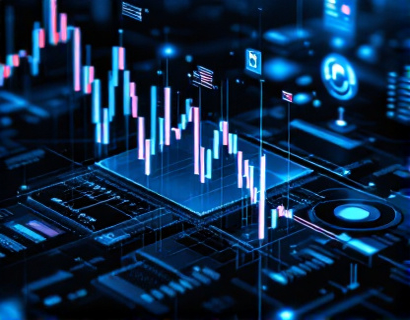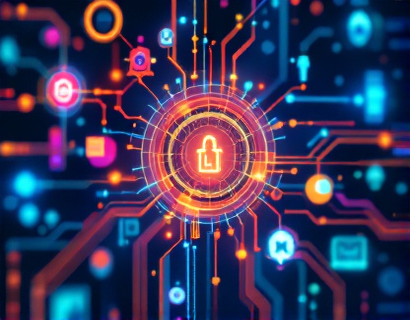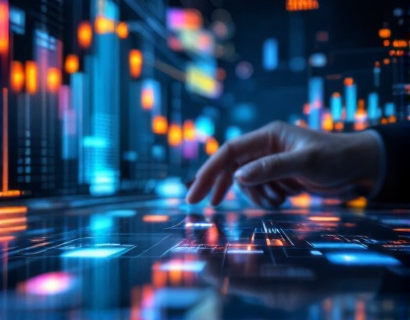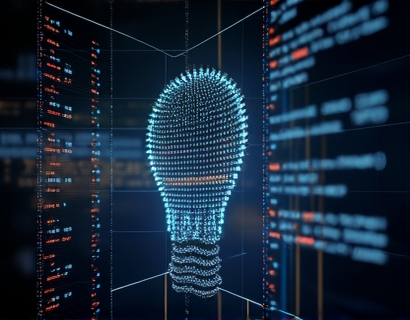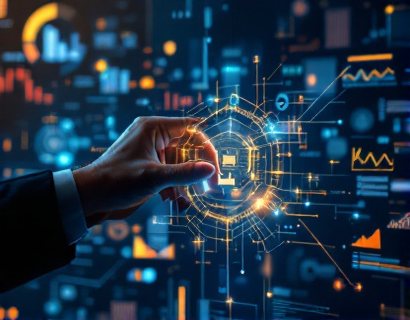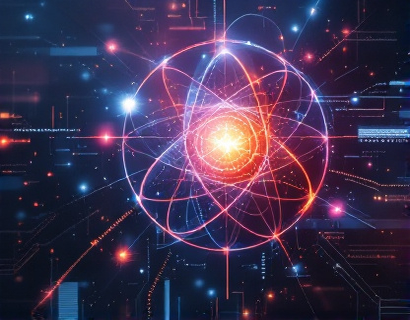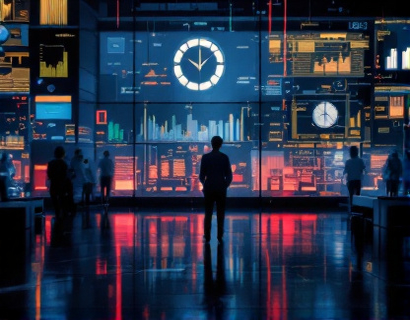Pioneering Seamless Digital Transformation with Advanced Blockchain Solutions and AI
The integration of Artificial Intelligence (AI) and blockchain technology is ushering in a new era of digital transformation, offering unprecedented opportunities for efficiency, security, and innovation. This synergy, often referred to as BlockchainAI, is revolutionizing the way businesses operate and interact in the digital landscape. By leveraging the strengths of both technologies, organizations can unlock new levels of performance and create a competitive edge in an increasingly complex market.
Understanding the Synergy of Blockchain and AI
Blockchain technology, known for its decentralized and immutable ledger, provides a secure and transparent way to conduct transactions and store data. AI, on the other hand, excels in processing vast amounts of data to uncover patterns, make predictions, and automate complex tasks. When combined, these technologies create a powerful toolset that can address some of the most pressing challenges in the digital world.
The fusion of blockchain and AI enhances data integrity and security, as AI algorithms can analyze blockchain data to detect anomalies and potential threats in real-time. This proactive approach to security is crucial in an environment where cyber threats are becoming more sophisticated. Moreover, AI can optimize blockchain operations by improving consensus mechanisms, reducing energy consumption, and enhancing scalability.
Enhancing Efficiency through BlockchainAI
One of the primary benefits of integrating AI with blockchain is the significant boost in operational efficiency. AI can automate routine tasks on the blockchain, such as smart contract execution and data validation, reducing the need for manual intervention and minimizing human error. This automation not only speeds up processes but also lowers operational costs.
For instance, in supply chain management, AI can analyze blockchain data to predict demand, optimize inventory levels, and streamline logistics. By identifying bottlenecks and inefficiencies, AI-driven insights can help businesses make data-informed decisions, leading to faster and more reliable supply chain operations.
Fostering Security with BlockchainAI
Security is a paramount concern in the digital age, and the combination of blockchain and AI offers robust solutions to protect sensitive information and assets. AI algorithms can monitor blockchain networks continuously, detecting and responding to potential security threats in real-time. This constant vigilance helps prevent fraud, hacking, and other malicious activities.
Additionally, AI can enhance the security of smart contracts by analyzing code for vulnerabilities and suggesting improvements. This proactive approach ensures that smart contracts are not only efficient but also secure, reducing the risk of exploits and breaches. The result is a more trustworthy and secure digital environment for all participants.
Driving Innovation with BlockchainAI
The convergence of blockchain and AI is a catalyst for innovation, opening up new possibilities across various industries. In finance, for example, AI-driven analytics on blockchain data can provide deeper insights into market trends, enabling more accurate risk assessments and investment decisions. This synergy can lead to the development of new financial products and services that are more resilient and customer-centric.
In the healthcare sector, BlockchainAI can revolutionize patient data management by ensuring secure and seamless sharing of medical records. AI can analyze these records to identify patterns and predict health outcomes, leading to more personalized and effective treatments. This integration not only improves patient care but also enhances the overall efficiency of healthcare systems.
Case Studies and Real-World Applications
Several organizations have already begun to harness the power of BlockchainAI, achieving remarkable results. One notable example is a leading insurance company that implemented an AI-powered blockchain platform to streamline claims processing. By automating the verification and approval processes, the company reduced claim settlement times by over 70%, significantly enhancing customer satisfaction and operational efficiency.
In the realm of cybersecurity, a tech firm developed an AI-driven blockchain solution to create a decentralized identity verification system. This system uses AI to analyze and verify user identities across multiple blockchain nodes, ensuring secure and privacy-preserving authentication. The result is a more secure and user-friendly approach to digital identity management.
Challenges and Considerations
While the potential of BlockchainAI is vast, there are several challenges and considerations that organizations must address. One of the primary challenges is the technical complexity involved in integrating these technologies. Developing a robust and scalable system requires expertise in both blockchain development and AI algorithms.
Another consideration is the regulatory landscape. As blockchain and AI continue to evolve, regulatory frameworks are still catching up. Organizations must navigate these regulations carefully to ensure compliance and avoid legal pitfalls. Additionally, the high computational requirements of AI and blockchain can lead to significant energy consumption, raising environmental concerns that need to be addressed.
Future Prospects and Trends
The future of BlockchainAI is promising, with ongoing research and development poised to unlock even more advanced applications. One emerging trend is the use of machine learning to optimize blockchain consensus mechanisms, such as Proof of Stake (PoS) and Proof of Authority (PoA), making them more energy-efficient and faster.
Another area of growth is the development of decentralized AI models, where AI algorithms are trained and executed on a blockchain network. This approach ensures data privacy and security while leveraging the collective computing power of the network. As these technologies mature, we can expect to see more innovative solutions that further blur the lines between blockchain and AI.
Conclusion
The integration of AI and blockchain is transforming the digital landscape, offering unparalleled opportunities for efficiency, security, and innovation. By embracing BlockchainAI, organizations can stay ahead of the curve and capitalize on the full potential of these cutting-edge technologies. As the ecosystem continues to evolve, the synergy between blockchain and AI will undoubtedly play a pivotal role in shaping the future of digital transformation.



